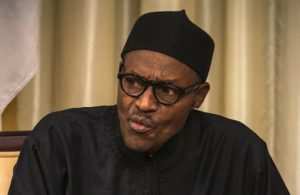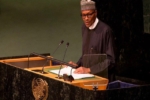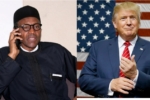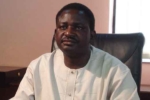
The Federal Government, yesterday, put Nigerians on notice, that its economic measures could lead to more austere conditions in 2016.
Minister for Budget and National Planning, Udoma Udo Udoma, said this during consideration of the 2016 to 2018 Medium Term Expenditure Framework (MTEF) at the Senate, adding that it was important that substantial reductions were made in government’s spending pattern in order to effect the expected change.
“In preparing the MTEF, we seek a dramatic shift from spending on recurrent to spending on capital aspect of the budget. It is going to be tighter for everybody. All non-essential expenditure would be cut off. We will reduce the overheads by seven percent. We are beginning a journey of change and change has to start with the clarity of purpose of where we are going,” he noted.
Explaining the position further, Minister of Finance, Kemi Adeosun, informed the National Assembly joint committee that the budget would take necessary steps to ensure that whatever money was being taken from the account of any ministry, department and agency (MDA) was done electronically. She added that the new measure would minimise waste and ensure transparency in government spending.
The Finance minister equally disclosed that measures had been put in place to compel revenue-generating MDAs to remit all funds they generate to the treasury. “The era when an agency generates money and spends 99 per cent of it is over,” she added.
Udoma, however, told the lawmakers in very clear terms that, “ultimately, we must borrow N1.8 trillion to fund this budget apart from all those adjustments we are trying to make.”
Chairman of the Federal Inland Revenue Service (FIRS), Babatunde Fowler, assured that the service “will increase revenue by over N1 trillion,” adding: “We are targeting N2 trillion from VAT.”
Central Bank of Nigeria (CBN) Governor Godwin Emefiele, said: “The exchange rate is actually N260 per dollar at the parallel market but the official rate is N197 per dollar.
“The CBN rate would revolve around a particular band which is N197. It could swing up to N197 or below. The truth is that, historically exchange rate for budget has never been based on the parallel market rate which as far as we are concerned is a shallow market because it controls about five per cent of the market.
“The market is substantially dominated by speculators and rent seekers. In the last 12 to 15 months, we have seen a massive drop in commodity prices especially oil that significantly affected the country’s revenue.
“That has placed some pressures on the reserves and that also resulted in the speculators and rent seekers in the market. What we did at that time when naira was N155 to a dollar, precisely late 2014, was to adjust the currency and move it from N155 to N197 to a dollar.
“We have through that arrangement, depreciated the currency by about 22 per cent. “The objective is to make export cheaper to encourage it but unfortunately we don’t have export. Our export has dropped very drastically in the last 10 years.
– The Citizen
This page has been viewed 486 times





























